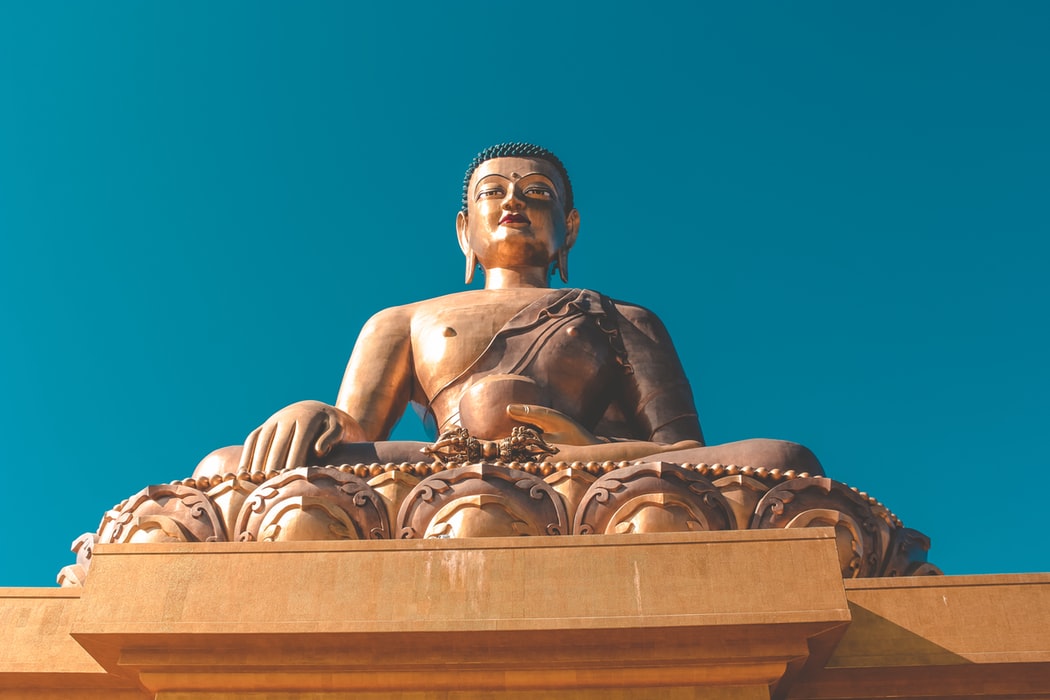The title of this article: “Buddhism – The Way to a Better You” almost sounds like a sales pitch, a slogan, a marketing promise. New and Improved Zen! Reach Enlightenment in Less than Two Weeks! On its face value, the title sounds similar to the weight-loss promises we’ve all seen on television and many of us have learned to ignore it. If you’ve clicked on this article, you’re probably at least somewhat curious about the claim. Is Buddhism really the way to a better you? Can Buddhism really change your life and make you happier? Does Buddhism make you sexy, get you the job you’ve always wanted and that house you’ve had your eye on for so long? Like most things, the truth is nuanced; it cannot be boiled down to a simple “yes” or “no.” So, I would be inclined to recast this article as “Buddhism – A Great Way to a Better You” and proceed from there.
It would be incredibly presumptuous of me to make the blanket claim that since Buddhism has worked for me, it will surely work for you and will definitely make you a “better person.” At the end of the day, we all must make our spiritual choices for ourselves. My path is not necessarily your path and my successes and failures cannot be yours. Therefore, I will humbly offer my experience with Buddhism and how I feel it has made me a better person in the hopes that you may consider your own spiritual tradition and ask yourself the question: “has this made me a better person?” I’d also like to make it clear up front that I am not a Buddhist teacher or lineage holder. I’m just your average twenty-something African-American Buddhist, trying to make my way through 21st century America.
Like many people who choose to start up a meditation practice, I had certain expectations when I decided to become Buddhist. Despite the fact that – in the Soto Zen tradition – we’re often taught to “just sit” with no expectations or goals for our practice, I started out with a fairly clear idea of what I wanted to get out of Buddhism. I wanted to be a nicer, more sincere and happy person. I wanted to be that woman who cared deeply for others and was happy to see any and every one succeed. Needless to say, after a few years of Buddhist practice, I am a long way from that goal but I do feel that I’ve become a “better” person than I was before I became Buddhist.
So, how does Buddhism help you become a “better you”?
What makes Buddhism different from the traditions we’re used to in the West is that Buddhism offers a unique combination of practical teachings and contemplative practices. I would break down my Buddhist practice into two main paths of practice: my regular sitting meditation and the practice of the dharma (or Buddhist teachings) in daily life.
 The very core of the Soto school of Zen Buddhism is the practice of zazen or sitting meditation. The basic method for this type of meditation is to sit in “open awareness” of the world around you, observing all that your senses take in as well as how your thoughts and emotions arise and pass away. Through the practice of regular meditation, we learn how to watch our reactions to external stimuli without instantly reacting. While many people, unfamiliar with meditation, often think that the goal is to “bliss out” and feel good, the real aim of meditation is to bring your mind and awareness into the present moment so that you can experience your life more fully. As a matter of fact, scientific studies have shown the benefits of this type of meditation. With practice, we can learn to greater appreciate the present moment and recognize more clearly how many possibilities there are in this very moment. Learning to be present can help our daily lives in a myriad of ways, from work productivity to social situations to a general sense of well-being.
The very core of the Soto school of Zen Buddhism is the practice of zazen or sitting meditation. The basic method for this type of meditation is to sit in “open awareness” of the world around you, observing all that your senses take in as well as how your thoughts and emotions arise and pass away. Through the practice of regular meditation, we learn how to watch our reactions to external stimuli without instantly reacting. While many people, unfamiliar with meditation, often think that the goal is to “bliss out” and feel good, the real aim of meditation is to bring your mind and awareness into the present moment so that you can experience your life more fully. As a matter of fact, scientific studies have shown the benefits of this type of meditation. With practice, we can learn to greater appreciate the present moment and recognize more clearly how many possibilities there are in this very moment. Learning to be present can help our daily lives in a myriad of ways, from work productivity to social situations to a general sense of well-being.
Of course, most of us are not monks. We have day jobs and daily lives that require us to leave the meditation cushion behind to live and work in the world. The lessons of the dharma have provided me with a sort of framework through which I’ve approached my life since becoming Buddhist. The Buddhist concepts of karma and interdependence have had a very deep and transformative effect on my life, helping me to become a much better and more considerate person than I was just four years ago. As Buddhists, we recognize that our thoughts and actions have consequences, some of which we can predict and others that often remain unforeseen; this is the teaching of karma in a nutshell. Through the teaching of interdependence, we recognize that everything is connected and indeed dependant on everything else in the world in some pretty unusual ways. Once you look at your life through the lens of interdependence, the way that you approach the choices in life and the people around you can shift and change. As a result, the stores you choose to patronize may change once you learn about their labor or buying practices; you may find yourself reconsidering the food you eat, once you learn where it comes from and how it was produced. Simply through understanding and experiencing the dharma, I naturally started to change my habits for the better.
Buddhism – meditation practice and a daily life practice
The practice of Buddhism as both a meditation practice and a daily life practice can lead to a change for the better. Indeed, the Noble Eightfold Path – the basic road map of Buddhist practice – is broken into three divisions: morality, concentration, and wisdom. The meditation piece of the practice contains the concentration and the wisdom aspects while daily life practice contains morality or ethical considerations. In this way, Buddhism offers a holistic approach to life and spirituality in which every aspect of our daily lives is contained within our practice. For this reason, Buddhism is a great way to a better you.
This article touches one very small aspect of Buddhist teachings and practice. There are many, many teachings and practices in the dharma that can make you a better person; I have just offered those things that I felt were of particular benefit for me. If you’re interested in learning more about how Buddhism can help you, I’d recommend finding a teacher or dharma center near you and pay them a visit, you’ll be able to learn much more and meet with others who are further along the path.





